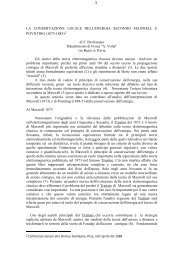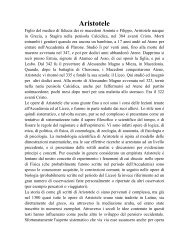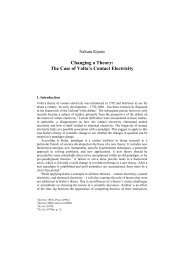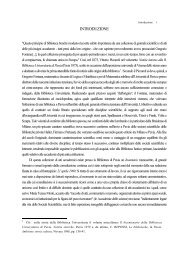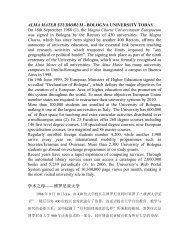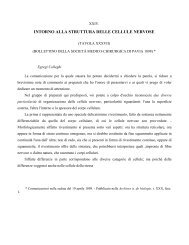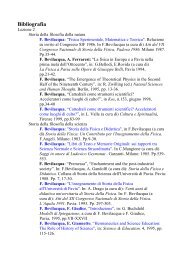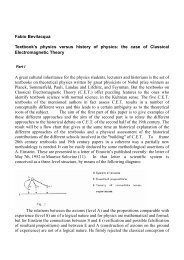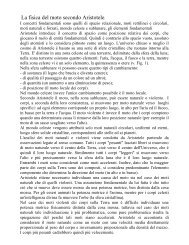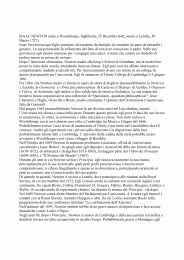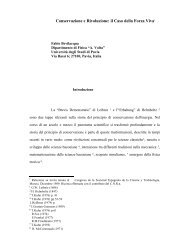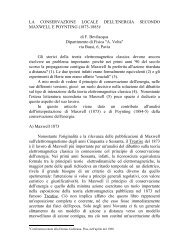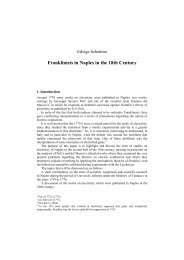Conservation and Innovation : Helmholtz's Struggle with Energy ...
Conservation and Innovation : Helmholtz's Struggle with Energy ...
Conservation and Innovation : Helmholtz's Struggle with Energy ...
You also want an ePaper? Increase the reach of your titles
YUMPU automatically turns print PDFs into web optimized ePapers that Google loves.
principle taking this potential into account, in analogy <strong>with</strong> the case (previously<br />
discussed) of the coupling of two magnets. But if we admit that potential we<br />
would not be able to rededuce Neumann's induction law, a law that is empirically<br />
corroborated. 221. In the second case terms unknown in 1847, but that indeed exist,<br />
were not predicted.The usefulness of the specific application of the concepts of<br />
tension <strong>and</strong> living forces is also questionable 222: what is the rational for defining<br />
aAJdt as tension forces? The equation in fact for Helmholtz still holds if A = 0,<br />
thus <strong>with</strong>out tension forces. Moreover, what is the reason to call the product JdV<br />
"the living force acquired by the magnet"? <strong>Helmholtz's</strong> efforts show thus that it is<br />
impossible an a priori precise theoretical deduction of the energy equations:<br />
experimental knowledge is required; on the other side, <strong>with</strong>out a guiding<br />
principle it is difficult to find <strong>and</strong> to interpret this experimental knowledge;<br />
moreover the expression of the principle can offer a ground for comparison for<br />
theories experimentally equivalent.<br />
This basic principle-theory-experiment interplay present in the Erhaltung will be<br />
permanently connected <strong>with</strong> the subsequent developments of the energy<br />
conservation theory. It is always difficult to take into account the different forms<br />
of energy involved in a specific process, <strong>and</strong> impossible to find the ultimate<br />
result 223.<br />
At the end of the section Helmholtz asserted that for some more complicated<br />
cases discussed by Neumann <strong>and</strong> Weber the principle cannot give precise<br />
determinations, but only qualitative indications, also because of the lack of<br />
experimental results 224.<br />
8 Conclusion<br />
Pp.111 <strong>and</strong> 114.<br />
221 See Planck Princip Pp.45-6.<br />
222 It was in fact discussed in Helm Energetik Pp.45-7.<br />
223 On the impossibility of a "primary" expression of energy see: Planck Princip<br />
224 The electromagnetic equations will be revised <strong>and</strong> rediscussed in 1854 during the<br />
controversy <strong>with</strong> Clausius.



